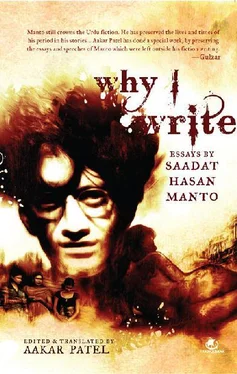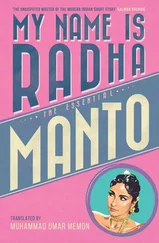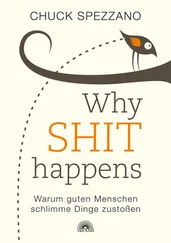It’s obvious that these questions are akin to blasphemy. But what can be done? Questions produce themselves automatically whether halal or haram . Sometimes the same question is produced in the minds of thousands at the same time. These days most people are thinking whether the business of Pakistan’s government is governance or mischief. Others among us phrase the question in a slightly different way: ‘Nawab Mamdot. Nawab Daultana. But wasn’t this supposed to be an egalitarian state?’
In Pakistan today the following questions have produced themselves:
Should women cover themselves?
If yes, what about nurses?
Should women wear their hair in one pigtail or two?
Is it fine for women to walk confidently?
Should women mount a horse wearing a shalwar or a sari?
While on the subject of women, another question produces itself. A bearded woman goes to the maulvis and asks: ‘So what is the proper thing for me to do? Am I to keep this beard? If so, how long? And should I shave off the hair on my upper lip?’
One question that’s produced in the minds of our leaders concerns the 50,000 girls who were left behind during Partition and are being used by the enemy. The leaders have been troubled by this for nine months. It’s possible that along with the question of those 50,000 girls, another 50,000 little questions will be produced (in fact a few thousands may have already been produced.)
— (Originally published as Sawaal Paida Hota Hai)
Manto predicted a Partition blowback. He thought the violent forces that had been unleashed during that period would remain in Pakistan’s society, damaging it. In this piece he tells us how the country would become increasingly violent unless the matter was taken up. It wasn’t, of course, and again Manto shows he was correct. He said the “age of barbarism” in Pakistan had already begun — and wrote this sixty years ago. As a writer, his understanding of the solution was unusual, and he turns not to sociology but, unusually for him, to something more personal.
The most prominent headlines these days are about murder and killings. So far as the stories go, they are fine and must be reported. But one wonders why there’s so much killing in Pakistan.
Aggression is part of man’s character, I accept that. What I’m asking is why is it now, these days, that there is so much of it.
Every morning’s paper is filled with details of cruel acts. What’s behind all this? Should we lose faith in humanity? Why have we suddenly become so bloodthirsty?
It’s difficult to figure out the answers to these questions. We thought of what had happened during Partition that brought the human race to shame — the parading of naked and helpless women, the murdering of lakhs of human beings, the raping of thousands of girls. We thought that after this, the problem was behind us. That Partition would rid us of the hatred and the violence. But now we learn that the hatred has not been expended. It thrives.
What had happened during the communal riots was explained away as group action. But now it’s clear that the violence is still within us. Every single day brings news of this.
We must ask ourselves why have these people become so violent. Why are they so intent on actions that do such damage to others.
I think the intensity of violence during Partition could have been reduced. Unfortunately nobody attempted to do this. The result is before us. We have hardened killers living in our midst. Their actions are being reported to us in the papers.
Their hands became familiar with dagger and pistol during the communal riots. What’s being done to control them now? The fact is that these people are a product of that event.
They weren’t used to killing, it is the circumstance that transformed them. They loved their mothers surely, and their friends. They understood the value of honour and respect for their wives and daughters. They feared god.
That one event obliterated all of this. An event so bloody as never witnessed before. What happened then is done and there’s little gain in analyzing it. But it’s absolutely essential that we examine its fallout. The changes that have come because of it. This is not the work of judges, therefore, but of psychologists. They alone can investigate the phenomenon and come out with some solution for it.
It’s troubling that our government is doing nothing about it though every single day, as I keep saying, brings news of violence.
One party confronts another, guns are pulled out, daggers are drawn and plunged in, soda bottles and rocks and whatever comes to hand is flung at the other side. It’s not clear where the administration disappears while this is happening. I don’t want to comment on the police. They are needed to stop this, of course, but the primary work is that of psychological examination. Why is this happening at all?
If we don’t examine it psychologically, I fear the situation will become worse. An era of barbarism will begin in Pakistan. Will begin? Let me correct that — it’s begun.
What day passes without evidence of it? And it has been happening in the open. Another problem in preventing it is that the killers are people whom the witnesses fear. They worry for their own lives. It’s often happened that a man is killed in public. The police may even catch the killer and produce him in court. But then the witnesses are not supportive and the man gets away.
I’m no supporter of the death penalty. Indeed, I’m not even in favour of jail. I don’t think jail reforms people. I’m in favour of that which turns them normal again. We often talk of saints and elders who with one word made terrible people repent. The most ordinary faqir in one meeting making the devil himself take the path of angels. So the soul is undoubtedly something that exists and can be influenced.
In this, our world of science when we understand atomic structure, it’s surely possible to examine ourselves, our soul, scientifically. Of course, we can’t dismiss those who approach the soul through namaaz and roza and aarti and kirtan. The soul is whole. And I’m convinced that the way to reform killers among us is through educating their souls.
They should realize that they can yet be saved. That they are ordinary men and it is the circumstances that made them monsters. They should also realize that it is man whom god made venerable and excellent. Whom He made the last Prophet.
If they understood that about themselves, I’m quite certain they will reform. One incident has brought this lack of harmony. True. But we must now be rid of its fallout.
Where is our humanity? Where are its keepers?
— (Originally published as Qatal-o-Khoon Ki Surkhiyan )
God is Gracious in Pakistan
If ever there was a prophetic piece on Pakistan it is this. Manto sketches an apocalyptic, Mad Max type future for Pakistan in this essay, as he began to recognize its Orwellian trajectory. Who can say he had it wrong? As they blow themselves up in acts of piety, taking offense to blasphemy, infidelity, apostasy and heresy, Pakistan is acting out its laws on its streets. It has moved along the cultural path that Manto saw it taking. There is no chance that something like this can be published in Pakistan again.
God is gracious, ladies and gentlemen.
There was once that time of barbarism when we had police stations in every neighbourhood. We had the high courts. There were government offices and chowkis. There were jails filled with prisoners.
There were clubs where people gambled, and where they could get a drink or two. There were dance bars and discotheques. There were cinema halls and art galleries.
Читать дальше












